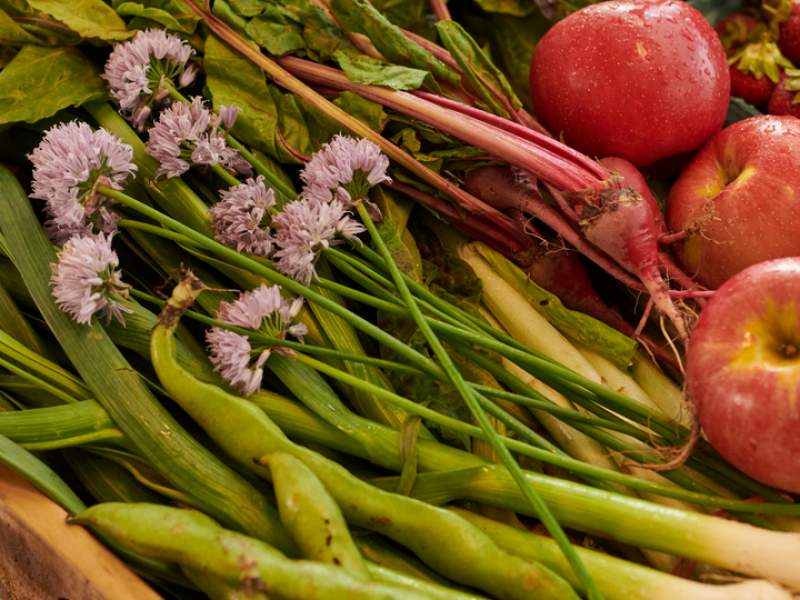Vivere verde, mangiare verde
Crediamo che sia altrettanto importante mangiare verde quanto vivere verde.

Recentemente abbiamo scoperto un articolo che riportava una statistica sorprendente: il bestiame allevato per la produzione di carne rossa e latticini è responsabile di circa il 14,5% delle emissioni globali di gas serra ogni anno. Ciò significa che il contributo annuale dell'allevamento mondiale di bestiame alle emissioni di gas serra è pari a quello di all veicoli su strada, le navi in mare e gli aerei in volo. Avete letto bene.
Si può affermare con certezza che la maggior parte delle persone non si rende conto di lasciare un'impronta di carbonio personale con le proprie scelte alimentari. Non c'è da stupirsi, dato che molti sono cresciuti imparando a conoscere la catena alimentare e ricevendo l'insegnamento che la carne bovina e altri prodotti a base di carne sono alimenti di base necessari nella nostra dieta. Gli studi stanno ora dimostrando che i prodotti a base di carne non sono necessari per una dieta sana e che la loro produzione non è positiva per l'ambiente. Cosa puoi fare per ridurre la tua impronta alimentare personale? Non preoccuparti, non try convincerti a diventare vegetariano, pescetariano o vegano (a meno che tu non sia pronto per questa sfida). Va bene se non lo sei, ma dovresti sapere che il manzo e l'agnello hanno la più grande impronta climatica per grammo di proteine, mentre gli alimenti a base vegetale tendono ad avere l'impatto minore. Il maiale e il pollo si collocano in una posizione intermedia. Essere un consumatore consapevole significa tenere a mente questo dato la prossima volta che sceglierete la vostra fonte proteica.
Ecco alcuni semplici accorgimenti che puoi adottare per mangiare meno carne rossa, aiutare l'ambiente e ridurre la tua impronta di carbonio personale:
- Mangia meno carne rossa e latticini (se proprio devi mangiare carne,Try , uova o maiale).
- Concediti una cena a base di pesce pescato in mare aperto invece della solita bistecca.
- Sfida te stesso a consumare una cena senza carne alla settimana. (Pensa a una sostanziosa parmigiana di melanzane o a un gustoso piatto di verdure saltate in padella).
- Try sostituto della carne: prodotti come l'Impossible Burger rendono difficile notare la differenza.
- Trova un sostituto dei latticini, ma fai le tue ricerche. Le mandorle richiedono sei volte più acqua dell'avena per crescere.
Non vogliamo che rinunciate a all cibi che amate, ma pensiamo che sia importante all più consapevoli di ciò che contengono gli alimenti destinati a nutrire il nostro corpo. Se volete fare un passo in più, invitate amici e familiari a partecipare alla sfida e trasformatela in una celebrazione di all bene che potete fare.












